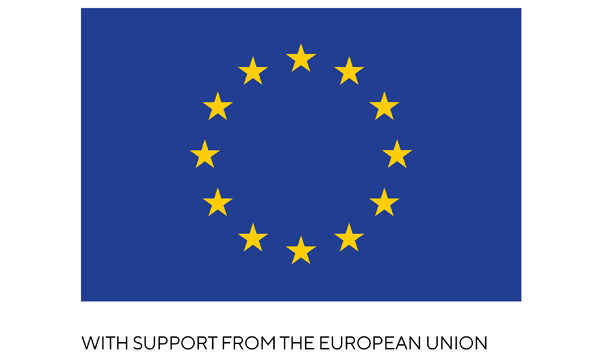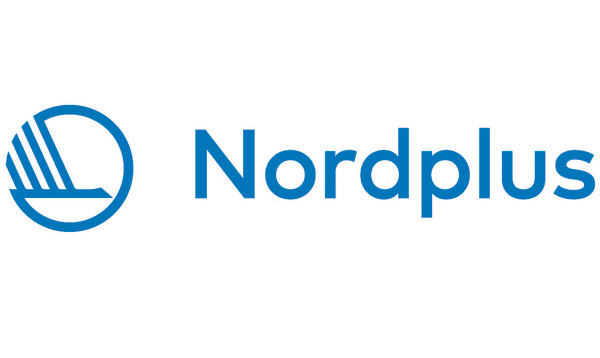Exceptional contributions to refugee inclusion through sport take centre stage at Moving People conference
23/11/2022Rachel Payne, ISCA

The Integration of Refugees Through Sport (IRTS) Networking Platform held its closing conference over two days as part of the Moving People – Moving Europe project multipliers and main programme, but the event was by no means the close of the network or the end of the initiatives that are part of it. Rather, it handed the stage over to 12 project leaders to share their work and what they have learned in the process. Here we feature the programme from the main stage at Maison de la Poste, Brussels, on 23 November – a year after the MOVE Congress 2021.
Nick Sore from the UNHCR chaired the IRTS workshop on 23 November, first explaining that the UNHCR is motivated to work more with the sport sector as it has seen the positive impact it can have on refugee inclusion, as was echoed by ISCA Award winner Gerald Mballe from the audience, who told from his own experience that “sport can give comfort, relief and a coping strategy to refugees.”
From the UNHCR’s perspective, Sore, said that “as a community, as an ecosystem, we want to find out how to engage the sport sector more broadly, and to enhance organisations’ abilities to react to more situations.”
In the morning panel, Sore emphasised that one of the UNHCR’s priorities is to help facilitate a more coordinated approach between sports organisations at both the community and elite levels.

In this afternoon workshop, he introduced three keynote speakers who have made exceptional contributions to refugee inclusion through sport. The first was Katerina Salta from the International Olympic Truce Centre in Greece, whose decorated CV includes designing and managing 12 sport for development projects and progressing from mentee to mentor through ISCA’s IRTS Mentoring Programme.
Salta explained that her most important lesson learned through her experience in the IRTS Mentoring Programme was finding a balance of both allowing her mentee to find their most effective way to work in this field and leading by example as a guide and as inspiration.
“Showing how something can be achieved is much more effective at empowering people than telling them what to do,” she said.

Design activities that nurture adults’ and kids’ mental health
Floor Lochten and Elin Hofman from TeamUp in the Netherlands provided a much-needed energy boost at the beginning of their presentation by getting the audience on their feet for a five-minute energiser based on their own method of delivering playful physical activities for refugee children.
TeamUp started in response to the lack of psycho-social support for refugee children in the Netherlands who are suffering from trauma and stress. It intervenes at the community level by providing reliable physical activity and play sessions for children and their families that happen at the same time and place each week and can be adapted to different contexts.
ISCA Executive Committee Member Jacob Kalinowski from V4Sport in Poland gave a powerful first-hand account of his work in Ukraine and Poland this year that illustrated how important it is to pay attention to nurturing both children and adults when they are experiencing displacement, crisis and trauma.
“[Nurturing] mental health is not only about the kids; it’s also the parents. The challenges are overwhelming and there is not one single kid or adult that does not have trauma from this situation.”
Kalinowski’s presentation began with the haunting sound of an air raid siren that brought the fear of unpredictable destruction into an otherwise peaceful and safe space. He has dedicated his year since February to offering aid, assistance and the development of physical activity resources and initiatives to accommodate teachers and refugee children in Polish schools.

ISCA’s Sport for Ukraine website was established as part of these efforts, when, together with the IRTS Network, including UNHCR, responded quickly to host resources and facilitate a network of grassroots sport organisations who want to help Ukrainian refugees directly.
“I’m thankful to ISCA for being there right from the start of the war, asking what they can do to help,” he said.
Award-winners join keynote speakers for World Café
Mihai Androhovici, from Sport for All Suceava in Romania, and ISCA Executive Committee Member Daniela Conti (pictured top) shared a concrete example of how the networking platform has helped organisations collaborate across borders. Conti’s organisation UISP in Italy travelled to Suceava to help with the coordination and delivery of aid and sports activities and a documentary of their collaboration received a Matera Film Festival Award in November.
Exactly one year after she delivered on the of the most powerful keynote speeches the MOVE Congress has ever seen, Afghan refugee and internationally acclaimed role model Khalida Popal returned to the stage to give an update on her gruelling and successful work to evacuate and re-establish the Afghan women’s football team abroad after the Taliban came into power in 2021.
The workshop gave the audience a chance to ask the experts their questions in smaller, more intimate groups in a World Café format – and a chance to establish contacts with potential new partners to ensure the network will continue to grow beyond the frame of the EU-supported IRTS Networking Platform project.
Part two: IRTS Networking Platform enhances visibility of community projects supporting refugee inclusion
Photos: Octavian Carare, infocus Brussels









Connect
Subscribe to our newsletter for regular updates on our events, activities and opportunities in our network
You can unsubscribe at any time.




